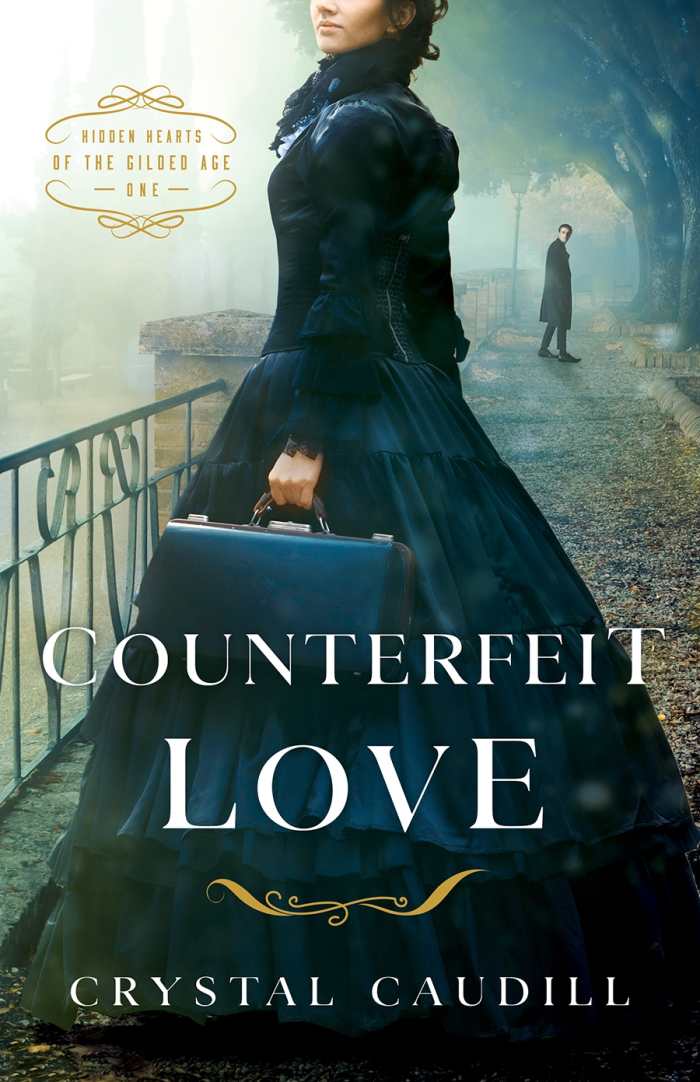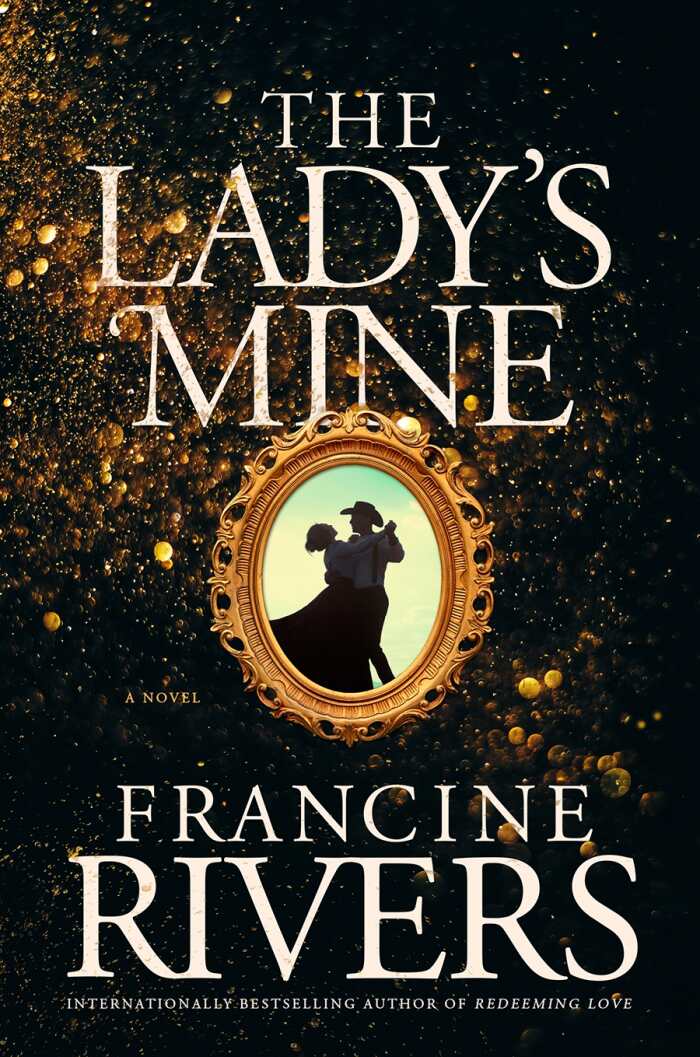Book of the Day Roundup: February 14-18, 2022
Counterfeit Love

Crystal Caudill
Kregel Publications
Softcover $15.99 (336pp)
978-0-8254-4740-2
Buy: Local Bookstore (Bookshop), Amazon
Former fiancées weigh the cost of reuniting with each other in Crystal Caudill’s invigorating Counterfeit Love, a Gilded Age novel set in Cincinnati’s underworld.
Broderick, a Secret Service agent, infiltrates a counterfeit ring that’s on the cusp of circulating fifty-dollar notes. Meanwhile, Theresa is loyal to her indebted, disciplinarian grandfather, Colonel Plane. When her efforts to ward off his creditors place her at a graveyard meeting, Broderick suspects that she’s part of the ring, too. His desire to protect her from a fellow agent who’s pursuing the case wars against his need to uphold the truth.
This original dilemma leads to an adventure in which cleverly placed red flags generate suspense, including around Theresa’s artistic skills and Colonel Plane’s role in it all. Hints about the cause of Broderick and Theresa’s broken engagement—and her subsequent engagement to another suitor, for whom she feels no passion—raise doubts about the pair’s ability to regain trust in each other, let alone renew their romance. These high-stakes tensions are fascinating, as is the fact that the couple’s faith enables them an opening to reconnect, despite their self-denial.
Broderick is observant as he moves through Cincinnati’s back streets; Theresa is valiant and vulnerable, though her attempts to shoulder her grandfather’s burdens suggest that she’s also stubborn. She believes that God will provide, and trusts in this more than depending on specific outcomes. As violence escalates around both leads, their interactions with each other stay tender. The story culminates with a sense of justice.
There are trials, misunderstandings, heartening conversations, and acts of derring-do in the historical romance novel Counterfeit Love, in which a bold criminal plot leads to deeper notions of perseverance.
KAREN RIGBY (December 27, 2021)
Red Is My Heart

Antoine Laurain
Le Sonneur, illustrator
Jane Aitken, translator
Gallic Books
Softcover $16.95 (192pp)
978-1-913547-18-9
Buy: Amazon
Antoine Laurain’s experimental novel Red Is My Heart is an artful articulation of the discombobulation that follows when a relationship is severed without warning. Written as letters sent into the ether, to a party who does not wish to receive them, this is a succinct, painful, and earnest book.
“I have always thought there was a certain charm in living in the early days of an era,” writes the lonely lover: “Now I’m not so sure.” Thrown by his ex-partner’s sudden desertion, he at first tries to reorganize his life around the gaps left by her absence—hiding his watch in a drawer to reorder time; ordering flowers for a woman murdered on his block over a century ago. His notes burst with yearning, but also confusion: he longs for someone who was not as they seemed. Finally, after much painful introspection, a new woman appears in his life, and he begins to believe in second chances: “will she be a source of happiness or suffering? … Anything is possible.”
The lover’s notes appear among street artist Le Sonneur’s stark images, which are evocative of cutouts and are rendered in black, white, and red alone. They depict lonesome scenes: a woman disappearing in the basket of a hot air balloon, red tears trailing in her wake; an assembly of balconies, from which are removed the shape of a looming person. These empathetic visual appeals are mimicked in the layout of the prose: lines appear upside down and sideways, mirroring the speaker’s lost sense of grounding; others flow like poetry, even as they speak of ordinary goings-on.
An emotive, striking trip through the barbs and empty spaces of a heartbreak, Red is My Heart is a dexterous love letter in reverse.
MICHELLE ANNE SCHINGLER (December 27, 2021)
The Lady’s Mine

Francine Rivers
Tyndale
Hardcover $27.99 (416pp)
978-1-4964-4757-9
Buy: Local Bookstore (Bookshop), Amazon
In Francine Rivers’s delightful novel The Lady’s Mine, an exiled Boston brahmin claims her uncle’s property in a “wild and woolly” mining town, flourishing against expectations.
Kathryn, whose rift with her stepfather propelled her westward to Calvada, is an enterprising young woman with a strained family history. But her arrival in a backwater full of men sparks the townspeople’s curiosity about why a lady would ensconce herself there with no chaperone. Beck, a saloon and hotel owner, bristles over her arrival, too, though he’s still compelled to look out for her well-being.
In this intriguing story about misaligned first impressions, headstrong Beck and Kathryn form a deep affinity for each other. They have a quick repartee and a mutual desire to improve their community. Kathryn’s subtle faith and earnestness draws Beck in. Their relationship begins in a cautious manner, prompted by curiosity. Repeated coincidences place them together, resulting in tantalizing frisson and humor. And Beck’s return to faith comes in natural increments; he’s an able counterpart whose plans dovetail with Kathryn’s. But mysterious circumstances surround Kathryn’s uncle’s death, and Calvada’s contentious hierarchy and rivalries create problems. Her revival of her uncle’s newspaper is met with political resistance.
Calvada’s colorful citizens, including a gangly typesetter and a matchmaking widow who runs a café, evoke the can-do ethos of the West. Despite their own broken dreams, people rally around Kathryn, who evinces genuine compassion for miners’ widows and others. She takes risks for her neighbors, resulting in redemption.
Agape love has rippling effects in The Lady’s Mine, an entertaining romance novel in which a forward-thinking woman and a former rogue work to energize a boom town.
KAREN RIGBY (December 27, 2021)
New Animal

Ella Baxter
Two Dollar Radio
Softcover $15.99 (184pp)
978-1-953387-12-7
Buy: Local Bookstore (Bookshop), Amazon
A piercing novel about death, grief, and the lengths people will go to escape them, Ella Baxter’s New Animal is not for the faint of heart.
Amelia, a cosmetic mortician with her family’s mortuary business, is a clinical woman who smothers her desire for an authentic connection with meaningless sexual encounters. It’s a coping mechanism she’s well aware of, if unconcerned by. Emotions elude her, especially her own; she haunts dating apps to feed her steady stream of one-night stands.
Though living people are a tedious puzzle, Amelia approaches the dead with tenderness: “There are hours in which all I do is map a whole person out.” Likewise, she reflects on death as a beautiful, necessary element of life—“life rests like a layer of chiffon over a body: one puff of wind and you’re dead.” She cannot extend such compassion and acceptance to herself and her own grief; a local tragedy still weighs on her in vulnerable moments.
With the sudden death of her mother, the last strings holding Amelia together snap. She flees to Tasmania to stay with her biological father. Trying to outrun her grief, she turns, again, to sex. One of her encounters draws her into the local BDSM community. It’s a turning point fraught with confusion and fear, but out of which she carves salvation.
Baxter’s prose is a living thing, wild and snarling, its jagged claws and honed teeth unforgiving and relentless. Amelia stokes empathy as a woman seeking absolution down dead ends. Her codependency and repression are addressed in frank terms—“Other people have always been the canary in the mine for me”—and every beat of dark comedy is paired with an empathetic wince as Amelia forces herself past her limits. New Animal is at turns graphic, disturbing, and tender—in other words: human.
DANIELLE BALLANTYNE (December 27, 2021)
Be Here to Love Me at the End of the World

Sasha Fletcher
Melville House
Softcover $17.99 (272pp)
978-1-61219-947-4
Buy: Amazon
Sam and Eleanor are in love. Eleanor cannot sleep. Sam has four outstanding invoices. They live in Brooklyn, where in winter, the snow falls with such ferocity that it creates mountain ranges. The president makes alarming claims about impending disaster. The secret police are everywhere. The world of Sasha Fletcher’s apocalyptic novel Be Here to Love Me at the End of the World is reality, blown up and zoomed out almost to the point of satire.
Neither Sam nor Eleanor tell their own story. They are being watched, tracked by an unseen presence, the narrator. A character in their own right, the narrator breaks the fourth wall often and with aplomb, sharing witty asides, relationship histories, the comings and goings of the secret police, even glimpses into the future. They can get ahead of themselves or distracted within the confines of the novel, leading to a narrative that, while focused on Sam and Eleanor, jumps through time and drifts into the lives of their friends.
The narrator finds the humor in any situation, and serves it up with deadpan seriousness. Where there is no humor, they rant: about the secret police, the president, and human nature. They are not impartial, no, but they are crucial to keeping the book’s tone balanced between cool, distant observation and tense, passionate commentary.
Through it all, Sam and Eleanor go about their lives, on the page and off. Sam makes dinner, gets a regular job. Eleanor pays the rent, convinces Sam that vacations are okay. The end of the world, such as it is, comes and goes. They are in love, fierce and radiant love. Be Here to Love Me at the End of the World is an announcement that love neither conquers all nor will it insulate one from the ills of society, though it does make life observable and bearable.
DONTANá MCPHERSON-JOSEPH (December 27, 2021)
Barbara Hodge
